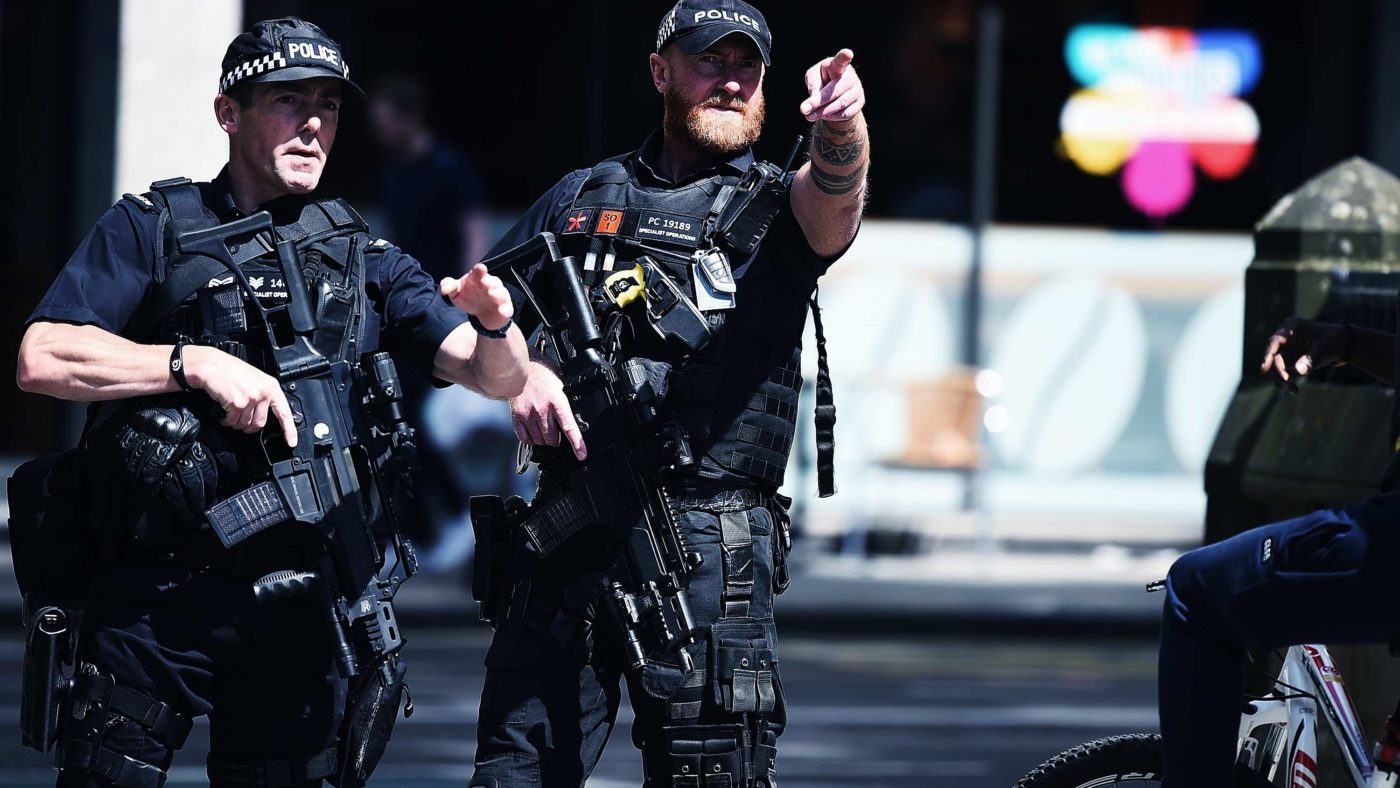The aftermath of a terrorist attack, not least one that that involves the murder of small children, is perhaps the most difficult moment in which to reflect on the broader circumstances of the threat from terrorism and Britain’s response to it. But our heightened emotions make it all the more important to make a sober assessment.
While the threat from terrorism has grown substantially since the emergence of ISIS in 2014, following a lull in the mid-2000s, the UK has devoted a large and rising share of resources into addressing this challenge. It has performed well, detecting and disrupting most plots. The result is a profusion of low-tech and less damaging – if no less frightening – attacks.
The UK has not been complacent about the challenge. The country’s annual counter-terrorism policing budget rose from £594 million in 2015–16 to £670 million in 2016–17, while the intelligence agencies will have received 1,900 additional staff by 2021. The government’s Prevent counter-extremism programme has an annual budget of around £50 million, while a new counter-messaging operation aimed at ISIS propaganda received a reported £10 million last year.
These are very substantial resources compared to almost all major European states. MI5 is 50 per cent larger than Germany’s domestic security agency, the BfV, despite dealing with a smaller population. It may also be larger than France’s DGSI, despite the far larger number of Frenchmen who travelled to Syria. The UK has also conducted airstrikes against Islamic State in both Iraq and Syria, including the targeted killing of a UK national who had been involved in overseas plots.
At times, the challenge has seemed overwhelming. As early as June 2014, half of MI5’s casework involved Britons who had travelled to Syria. More recent data suggests that over half of the 850 Britons who have made that trip have returned to the UK, indicating that the burden on border control, surveillance, interrogation, and prosecution will have grown substantially in the years since. As MI5 chief Andrew Parker has noted, this is a “generational challenge” that will remain for years to come.
Despite this challenge, the UK has performed well. Monday night’s attack was the first jihadist bombing in the country for over 12 years. In the intervening period, from the murder of Lee Rigby in May 2013 to the Westminster attack in March 2017, perpetrators have largely been confined to far more limited means of attack, keeping the death toll much lower than the incidents in France or Belgium.
The British authorities have foiled 10 plots in the past two years, despite 550 live cases at any one time, and 13 plots in the past four years. This is an impressive rate of success, by any measure.
More broadly, does the UK have sufficient powers to deal with terrorism? Given the extraordinary calls by mainstream broadsheet journalists calling for a state of emergency and mass internment of suspects, you might be forgiven for thinking that our system of intelligence and law enforcement was on the brink of collapse.
Of course, this is not the case. Monitoring 400-plus returnees is undoubtedly taxing. The Guardian noted in March that “counter-terror officers believe the criminal courts have the legal arsenal to handle the bulk… so long as it can be proved in court they took part in fighting”. This still leaves many others who may not be as easy to prosecute.
But the UK overhauled its system of so-called control orders in 2011, putting in place Terrorism Prevention and Investigation Measures (TPIMs). These allowed the government to impose two-year restrictions on individuals who were thought to pose a threat but could not be prosecuted, often because the case against them depended on valuable intelligence that could not be revealed in court (or, indeed, the White House). The government could even force suspects to move 200 miles away from their own house, in order to keep them away from suspect networks.
As of November 2016, just six suspects – five of them British – were subjected to these measures, down from eight in 2013. While the system is not without its problems, it represents a way of striking a balance between a broad violation of due process and individual rights, and the difficulty of reconciling the secrecy of counter-terrorism-related intelligence with the evidentiary burdens of the courtroom.
Monday’s attack was abhorrent assault on Britain’s open society. But it is a mark of the country’s police and intelligence capabilities that such attacks are a rarity in the UK, in an age of large-scale flows of jihadists back and forth across Europe, North Africa, and the Middle East.
The UK has identified the attacker, arrested a suspect, and done so with remarkable speed, all the while maintaining proportion and calm – more than can be said for other Western democracies.
There is much that we can do to improve. There will be continued debates around the effectiveness of Prevent, for instance, or the future of European counter-terrorism cooperation. But we should also keep in mind that the UK’s counter-terrorism record is, in general, commendable.


